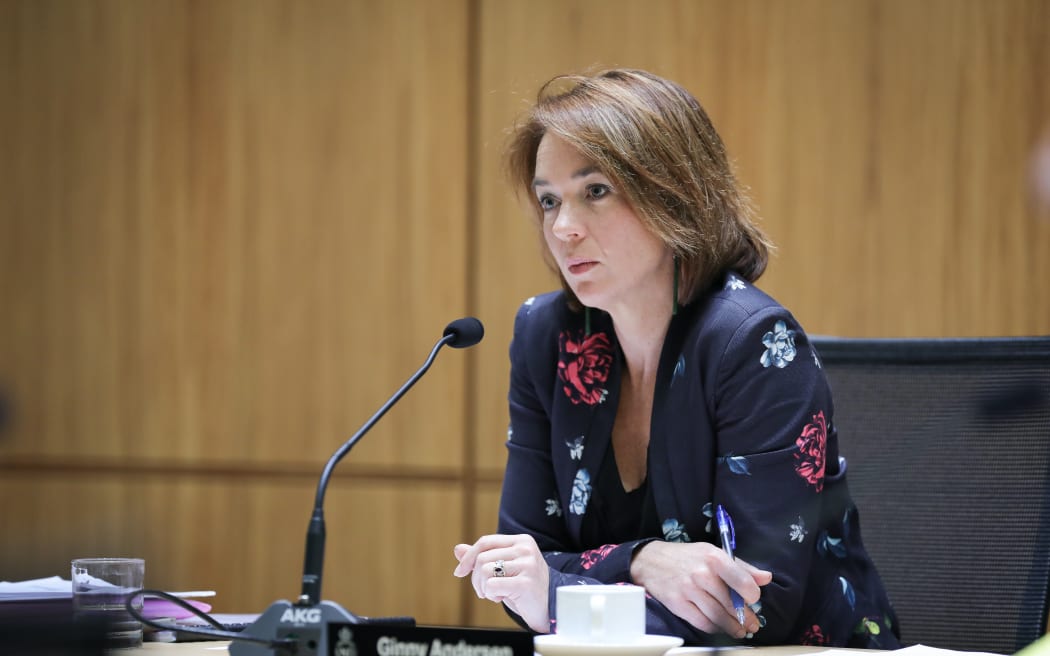Parliament is gradually creating new protections for children against harm caused through digital communications, but it's an area in which deftness is required to make effective law.
Currently before the Justice Committee is the Crime (Child Exploitation Offences) Amendment Bill, which targets grooming of children by adult predators. It started out as legislation with a focus on the online space, and the MP behind this Member’s Bill hopes for it to be widened in scope to include offline or ‘real life’ space.

Labour MP Ginny Andersen chairing the Justice Committee Photo: ©VNP / Phil Smith
As it stands, sexual grooming provisions in the Crimes Act require that a defendant must have met the young person they have targeted, travelled to meet them, or arranged for or persuaded the young person to travel to meet them. The law is inadequate, and the Law Commission has recommended amending it to focus on the process of grooming itself.
The Crime (Child Exploitation Offences) Amendment Bill makes it an offence for someone over 18 who digitally communicates with someone under 16 to intend to mislead about their age or identity and then meet with persons under the age of 16, and also an offence to intend to cause harm through such communications.
The law has been unable to keep pace with fast changing digital technology, and as young people increasingly live online, lawmakers are playing catch-up.
“There’s been a lot of development over the past couple years particularly with members' bills that are addressing some of the gaps, as more young people are active online as opposed to ‘real life,’ and there does seem to be a few gaps in the law to help protect young people,” said the bill’s sponsor Ginny Andersen, who is the chair of the Justice Committee.
She said the bill made it easier for police to intervene earlier, as offences in this space have typically been difficult to prosecute.
In a similar way, the recently passed Harmful Digital Communications (Unauthorised Posting of Intimate Visual Recording) Amendment Bill made the law - where it criminalises the online sharing of ‘intimate’, (eg naked) photos or videos of another person - more enforceable via a shift in the onus to being on the perpetrator instead of the victim, by presuming harm and placing the burden of proof for consent on the ‘sharer’.
According to 2018 research by Netsafe and the Ministry for Women, seven in 10 New Zealand teenagers had experienced at least one type of unwanted digital communication within the past year. It also found that nearly 19 percent of those teenagers surveyed experienced an unwanted digital communication that had a negative impact upon their daily activities. Also, 19 percent surveyed had been asked for a nude or nearly nude image of themselves to be shared.
Seeking a wider remit
Andersen said that when she started with this bill the underlying idea was that it should send a very clear message that adult predators looking to groom children is unacceptable.
“Through the submissions process we’ve heard that there is a regular occurrence that they see particularly in predatory behaviour of setting up a web of deceit, if you like, in real life,” she explained.
“And that might be with people in the community, it might be with parents, it could be with a range of relationships which set up, I guess, an environment where offending is able to take place,” she said, adding that establishing such environments could sometimes take years.
“So what a lot of the submitters have stated is we’d like to have a closer look at how we can potentially intervene earlier. It will be difficult to charge, I think, but I’m really keen to do some additional policy work in this space to see if we can.
“So the committee has written to the minister to ask to widen the scope of the bill, to widen to include in real life, because we need some additional policy advice to see if we can do that.”
It’s a reminder that members' bills can change shape quite significantly during their passage through Parliament, “because ideas that you come up with and put in the ballot don’t go through the same rigour as what a government bill would do”.
“So you can often find out that there are hooks or gaps that weren’t thought through at that early stage that get teased out at the select committee stage. And of course members don’t have that support of a government department when you’re coming up with the idea. So often when those experts are in the room helping you out, you get a better idea of how it might work in real life.”
Not often does a select committee deliberate on a bill in the name of its own chairperson.
“It’s a first for me," Andersen said, "but I’ve got a pretty good deputy chair with Vanushi Walters, so she can step in and help out if there’s any time where I need to be sitting in front of the committee.”
For now, Andersen is relishing the challenge of developing a small but effective piece of law for an area in which it's been difficult to catch and charge offenders.

